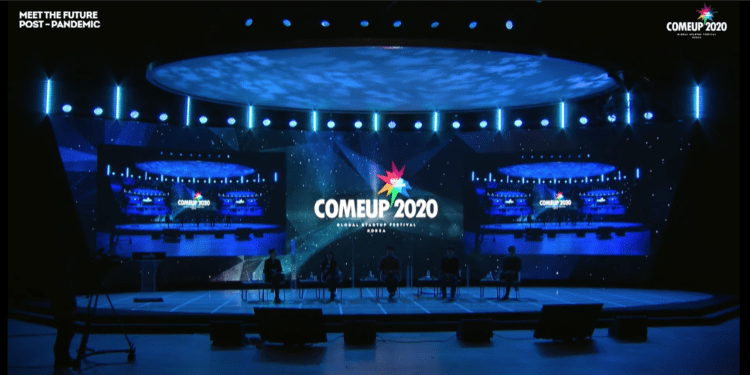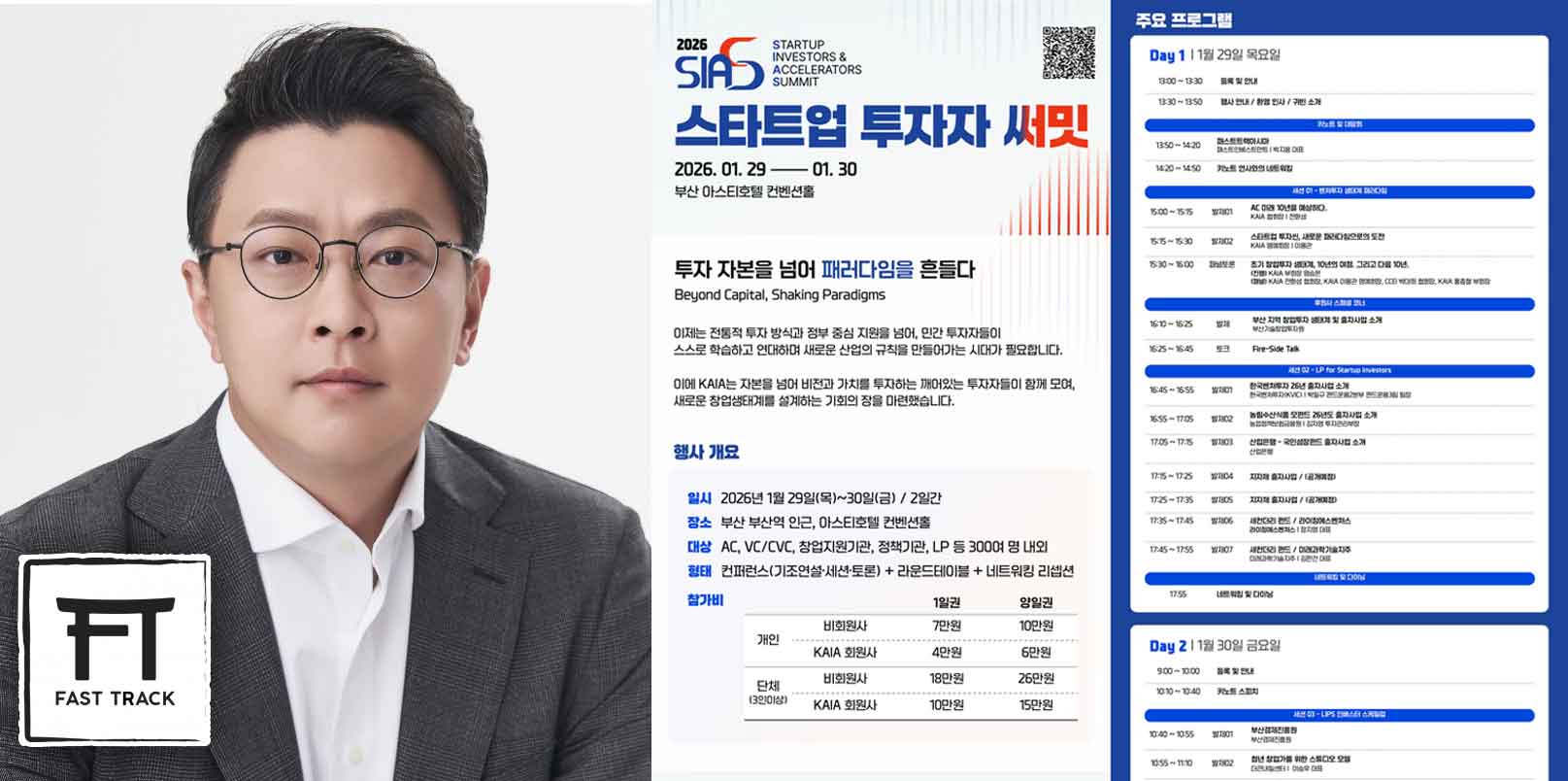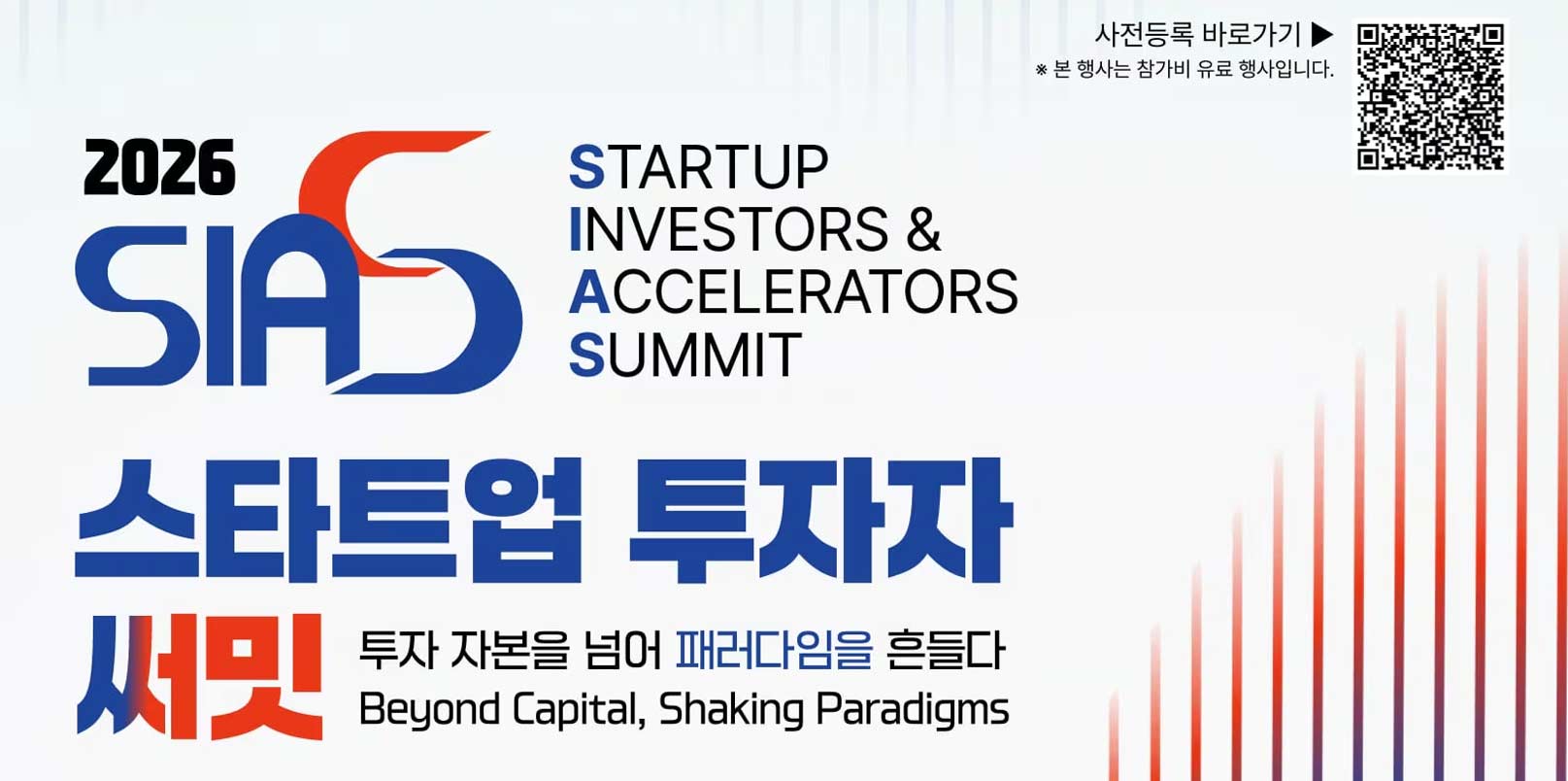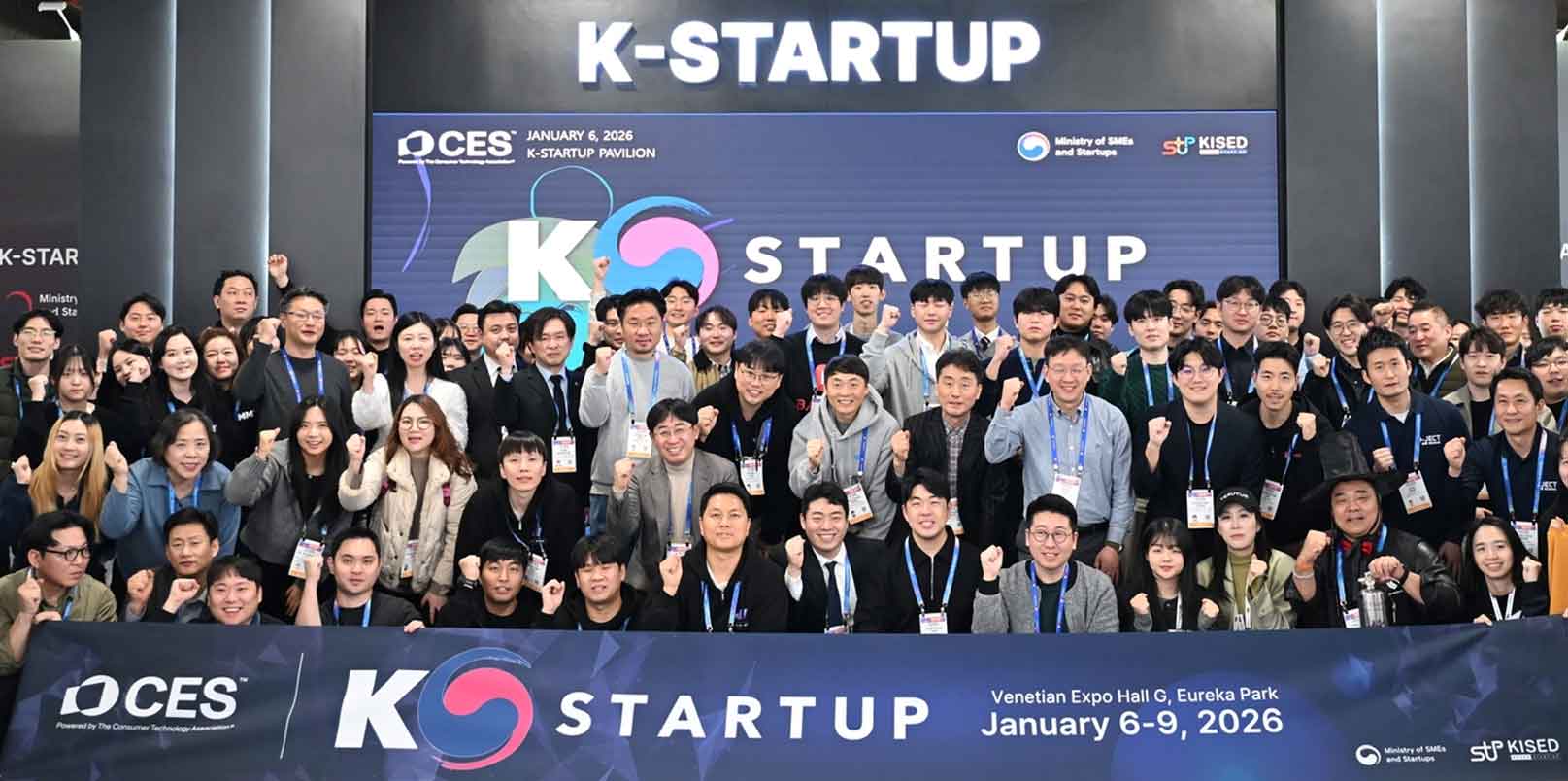COMEUP 2020 was held successfully from November 19th to 21st, 2020, through a virtual medium this year due to the pandemic. All three days of the festival saw many topics relevant to the present time and for the future were discussed. Korean startups and global startups, which were part of the COMEUP STARS team and K-Startup Grand Challenge platform, got the opportunity to pitch their stories, network, and get mentoring from experts. The number of viewers on day one of the event had surpassed 50,000 viewers and the subsequent days saw more online attendees.
The 3-day global startup festival was in its second edition under the futuristic theme of “Meet The Future – Post Pandemic.” World-renowned experts, global startups, successful Korean startup founders, emerging startups, all gathered on a virtual platform to celebrate Korea’s most prominent startup festival. The event was live on YouTube, Naver TV, Kakao TV’s ComeUp channel, and a link on the www.kcomeup.com. Topics like post-pandemic future, digital healthcare, edutech, entertainment, open innovation, AI & Big Data, e-commerce, and much more were discussed across platforms at the event.
It was an inspiring and insightful 3-day event that displayed businesses’ integrity to overcome challenges even in times of a pandemic. The event showcased the world that a more robust and brighter future awaits everyone, and the current crisis shall be overcome with new emerging business models and systems.
Like the first two days, day three was also full of extraordinary individual talks and panel discussions. The themes of the day were entertainment, e-commerce, retail and education.
Entertainment
Korean entertainment wave or the ‘Hallyu’ has taken over the global entertainment lovers. K-Pop, K-Drama & Korean movies, webtoons, games, are in such high demand worldwide. K-Pop band BTS making record-breaking numbers, Korean movie Parasite winning the Oscar, Korean developed online games and webtoons creating new fanbase, are enough reasons to have the topic of ‘Entertainment’ as the start of the day three of COMEUP 2020. Korean startup founders, domestic and global experts, entrepreneurs, and entertainment companies participated in talks and discussions at the event on the final day.
Keynote: Culture Technology Shining in the Non Contact Era
The topic of entertainment began with a keynote speech by Chris Lee, CEO of SM Entertainment. Chris Lee said that we are living in a new era and culture technology will shine in the era. He talked about ‘untact’ or non-contact times in the context of entertainment.
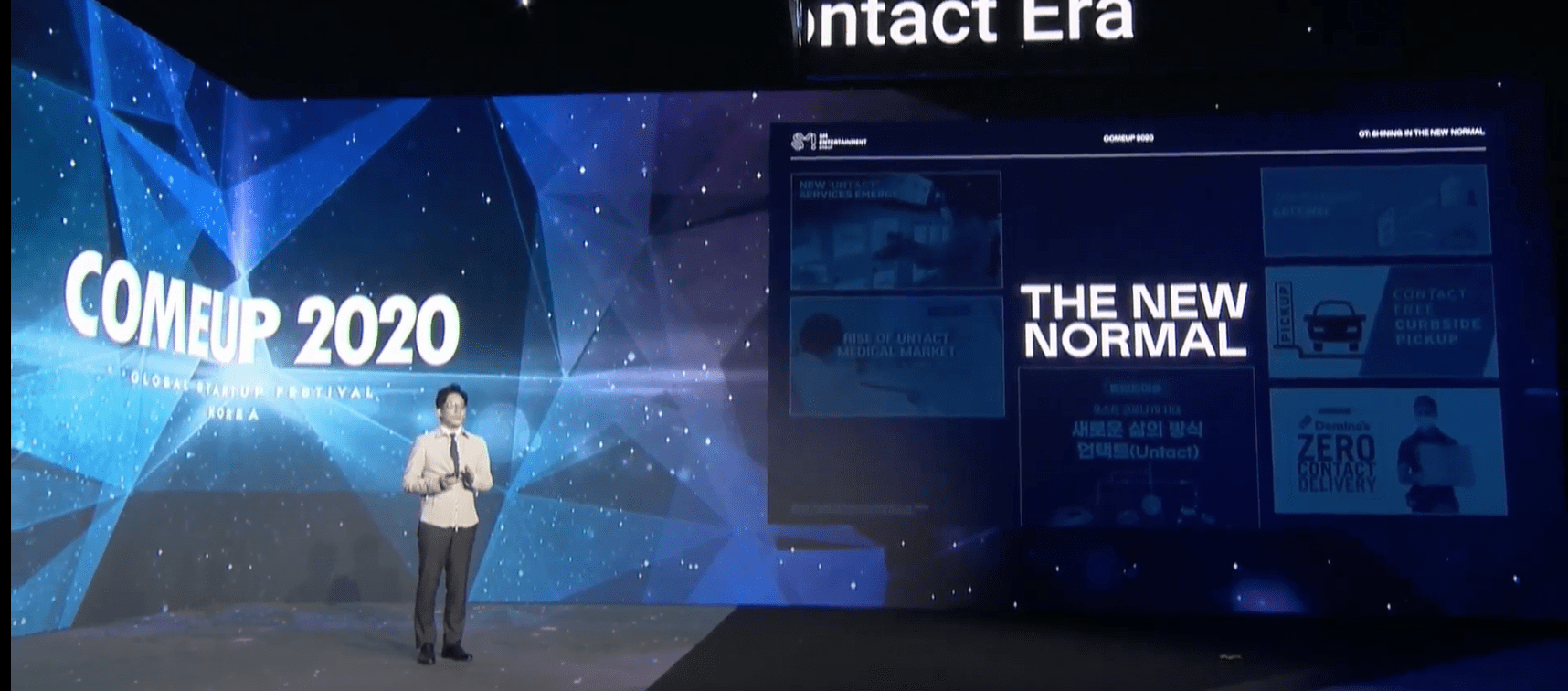
Chris spoke about global expansion by Korean entertainment startups and companies. He cited examples of popular K-Pop groups entertaining audiences worldwide. Chris’s speech included the release of entertainment models using technologies like Virtual Reality. “Aesop’s VR avatar release got 21 million hits on YouTube. Boa, NCT, Red Velvet, Super Junior, etc like K-Pop artists are working within the essence of reality and VR,” he said. Chris advised startups in the technology industry, students, startup founders, to really advance in technology and lead the new normal in entertainment and fun.
Keynote: The Shifting Media Landscape and Opportunities for the OTT Market
Followed by enriching speech by Chris Lee, Taehoon Park, CEO of Watcha, gave another insightful talk about the changes in the media landscape and the OTT market. Taehoon Park is a KAIST alumni and started Watcha Pedia, a personalized content recommendation service and Watcha OTT service.
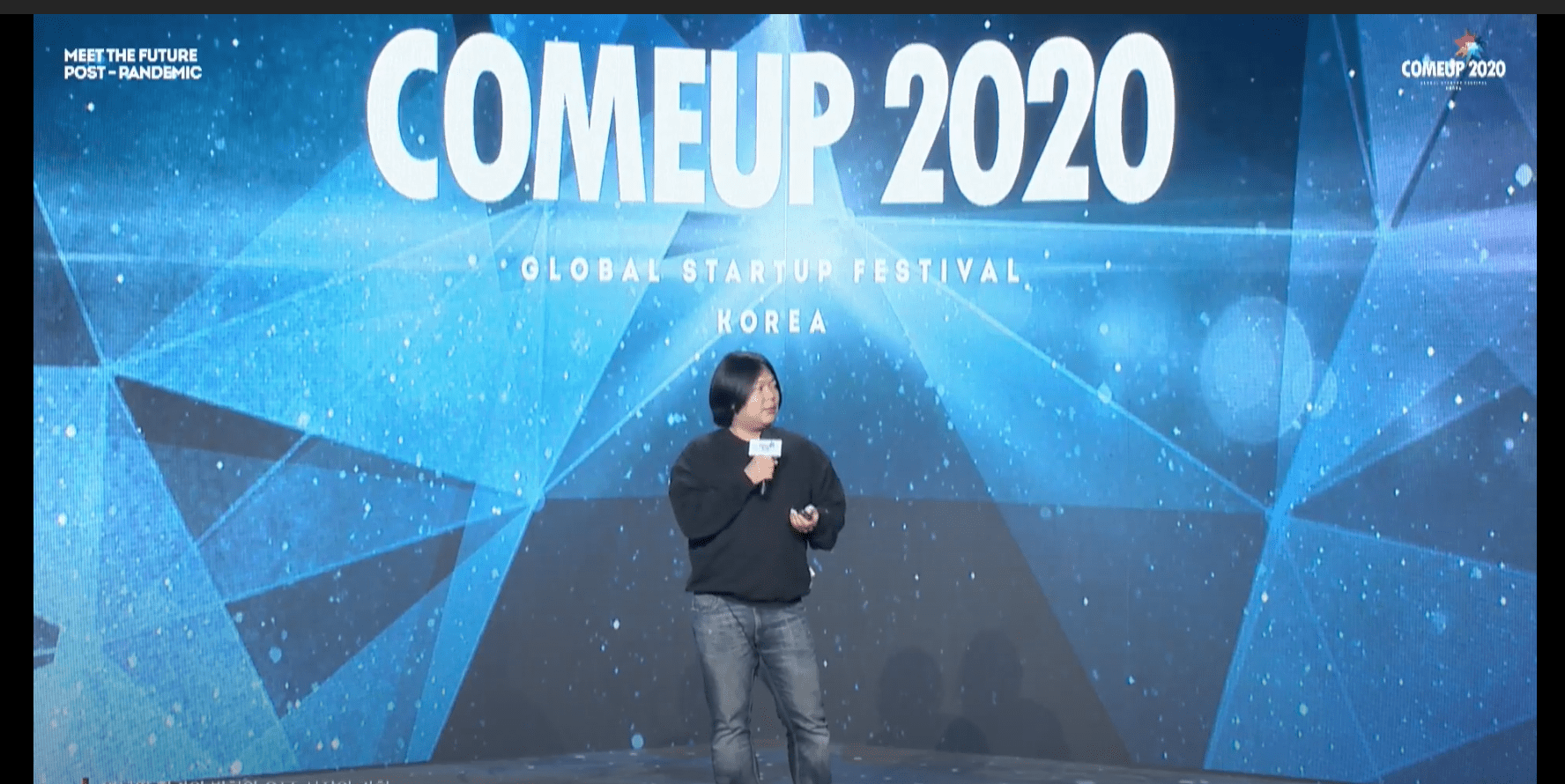
Taehoon talked about launching his startup in the entertainment sector and what all he learned building it according to consumer-friendly. He told about how various contents were brought in and made relevant for their audience. Taehoon also shed light on changes in the media landscape as a OTT channel owner. “The media is changing from newspaper, radio to TV to internet to now it’s on mobile. So there is scope for different players at different times.,” he said. He explained how advertisement affects the change in the media landscape. He says in Korea in the future, the OTT market is going to grow exponentially, and data may be great help to judge the success of entertainment content. Taehoon ended his talk with a hope that Watch will soon have Harry Potter series for audiences on its platform.
Panel: Born Global: What Makes an Entertainment Platform on a Global Scale
With the media landscape leaning towards OTT platforms, the big question is always about content – what type of content can suit the tastes of the global market? How can content be improved? Can domestic content have global outreach? A panel discussion on making entertainment platforms for global audiences was held moderated by Ye Sol Jeong, Investment specialist with FuturePlay.
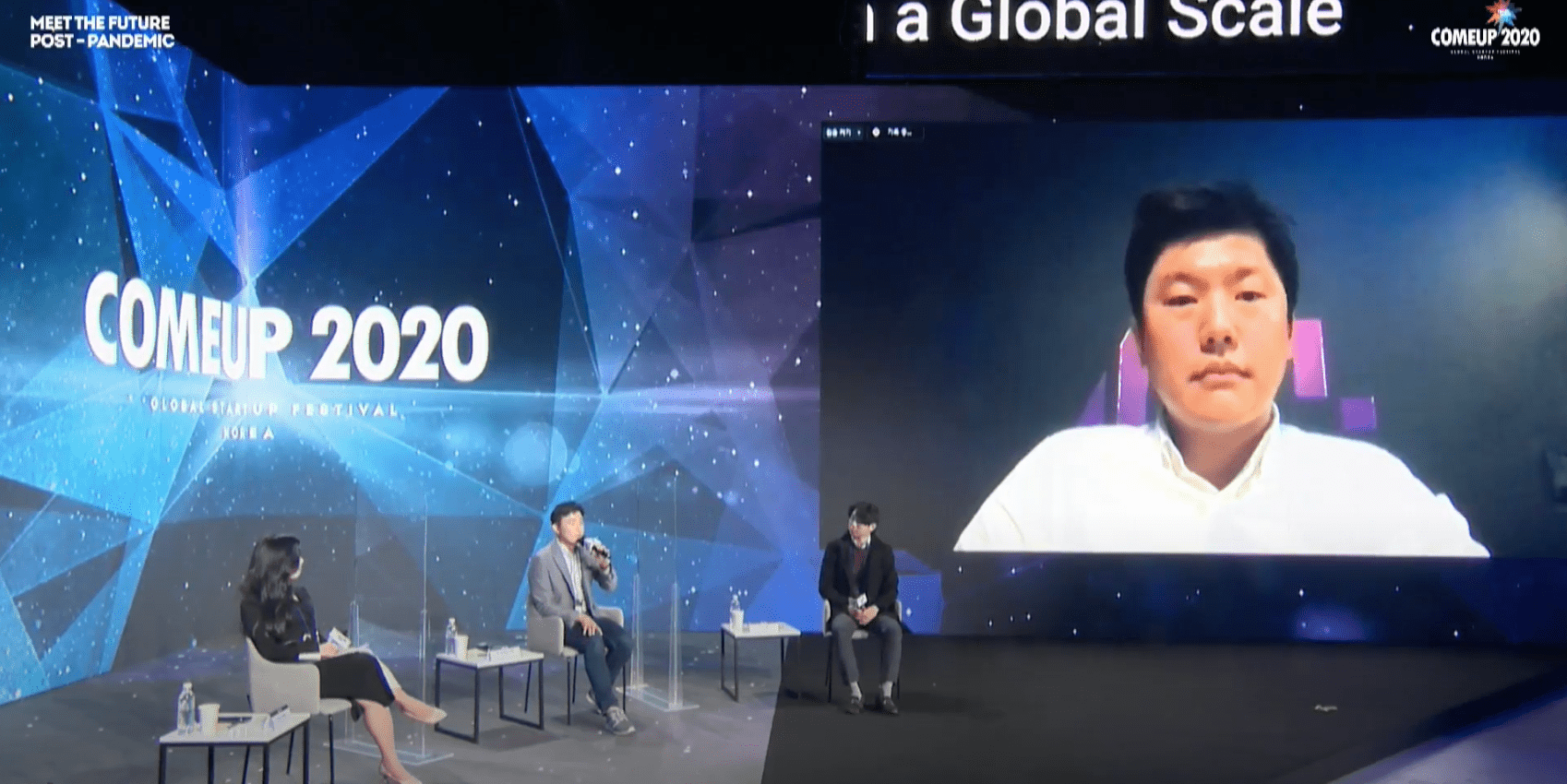
The panelists who joined her were Ki Jun Seo, CEO and co-founder of Planetarium, a startup pioneering the next generation of open-source, serverless MMO games on blockchain technology, Steve Lee, co-founder of AmazeVR, a virtual reality concert platform, and Sung Moon Cho, Founder and CEO of Chartmetric, a data analytics company dedicated to serve the music industry. The panelists talked about their startups and ventures and how they began their journeys in the entertainment medium.
The panel talked about challenges faced by entertainment startups with regards to contents and other things. “For any startup, even entertainment one, the big challenge is to get customers, even talking to first potential customer is a challenge,” said Sung Moon Cho. Ki Jun Seo of Planetarium talked about how technology will disrupt the online gaming industry. Steve Lee, co-founder of AmazeVR, talked about hiring the right team is important.
Panel: New Media Moving Beyond Portal and Social Media
Entertainment is now also a part of the new media – the social media platforms and hence the next panel in ‘entertainment’ was about it. The panel was moderated by Tae Yong Kim of EO, Korea’s number one media on entrepreneurship and startups.
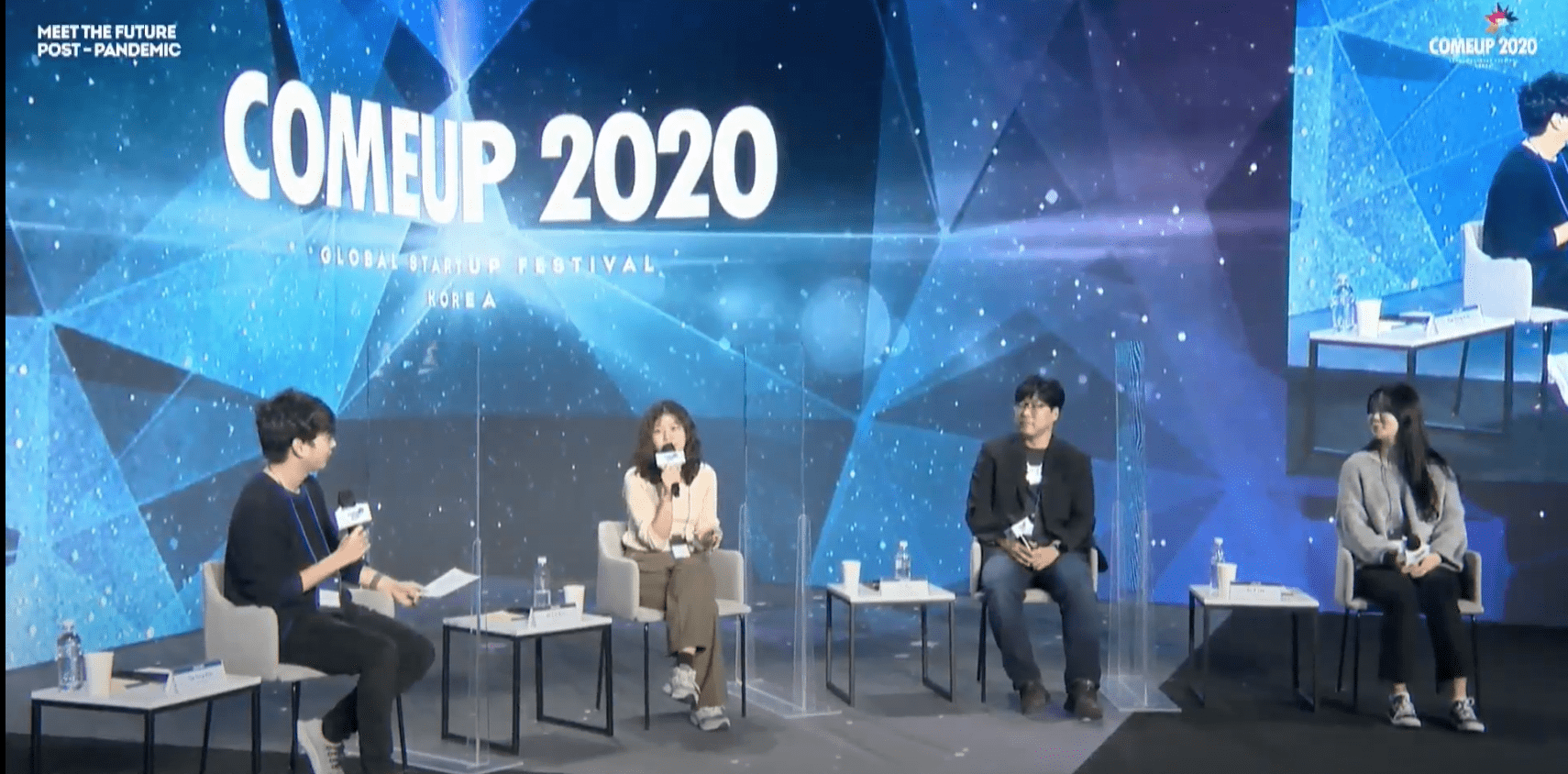
The panel members included Da Eun founder of NEWNEEK, Will Ryu, founder of startup OXOpolitics, and Su Ji Lee, CEO of Things flow. The panel talked about the emergence of the new media as a form of entertainment. The panel members talked about their journeys of entrepreneurship, the funding process, getting customers.
Will Ryu, who has spent significant years in the Silicon Valley, wanted to develop something where technology can help in building a community forum for politics. “Digital content that people invest in is what they find appealing and believe in,” said Su Ji Lee, CEO of Thingsflow. Da Eun talked about how psychology also plays a role for people selecting particular content. The panelists agreed that once content is appealing to consumers, it takes less time to go from free service to paid subscription.
Education
COVID-19 has certainly changed the way education is being imparted. While it has brought in closures of schools and learning in an open environment, the other side has been opening avenues for online-learning, homeschooling. Technology is playing a major role to enhance the education needs of the present and is set to change the future of learning. COMEUP 2020 held talks and discussions about the future of education on day three.
Online Education: The Post-COVID Future
The topic of education began with a talk by Dr. Betty Vandenbosch, the chief content officer at Coursera, a popular e-learning platform. Betty talked about online education in South Korea, about her company Coursera and the future of higher education post-COVID-19.
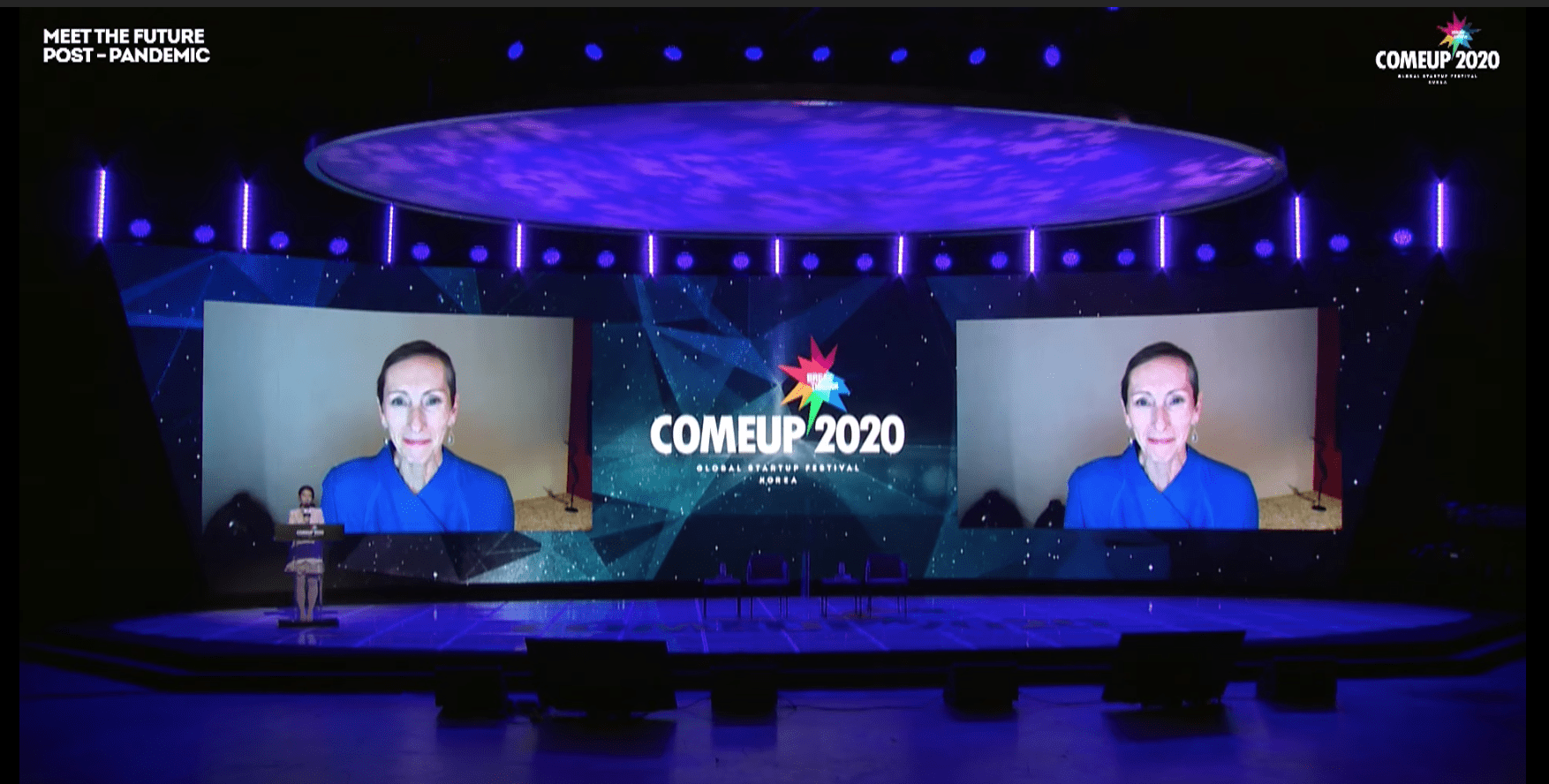
Before joining Coursera, Betty was chancellor of Purdue University Global, Betty oversaw academics for more than 32,000 students — most of whom earned their degrees online. Before that, Betty held a number of leadership positions at Kaplan University and served as associate dean and associate professor at the Weatherhead School of Management at Case Western Reserve University. Throughout her career, Betty has won several awards in teaching and research.
Betty talked about online-education penetration in South Korea and how startups have the opportunity to use technology and build more e-learning platforms. She talked about Coursera’s mission and their collaborations in South Korea. She introduced Coursera, which is an American open online course provider. The company was founded in 2012 by Stanford University’s computer science professors that offers massive open online courses, specializations, degrees, professional and master track courses. She talked about the challenges faced by Coursera and how the pandemic has affected the online platform. Betty shared her thoughts about how higher-education will change with the pandemic era and what the future holds for it. Betty also answered few questions from the audience.
The True Role of EdTech Startups in the Post COVID-19 Era
A panel discussion was held about EdTech startups and their future post-COVID19. The panel comprised of prominent startup founders of EdTech companies. Young Jun Jang is co-founder and CEO of Riiid, a leading AI-driven EdTech start-up based in Korea, lead the talks with startup founders in EdTech. Soon Lee is co-founder and CEO of Enuma, an education technology company with offices in Berkeley, Seoul, and Beijing participate via video conferencing.
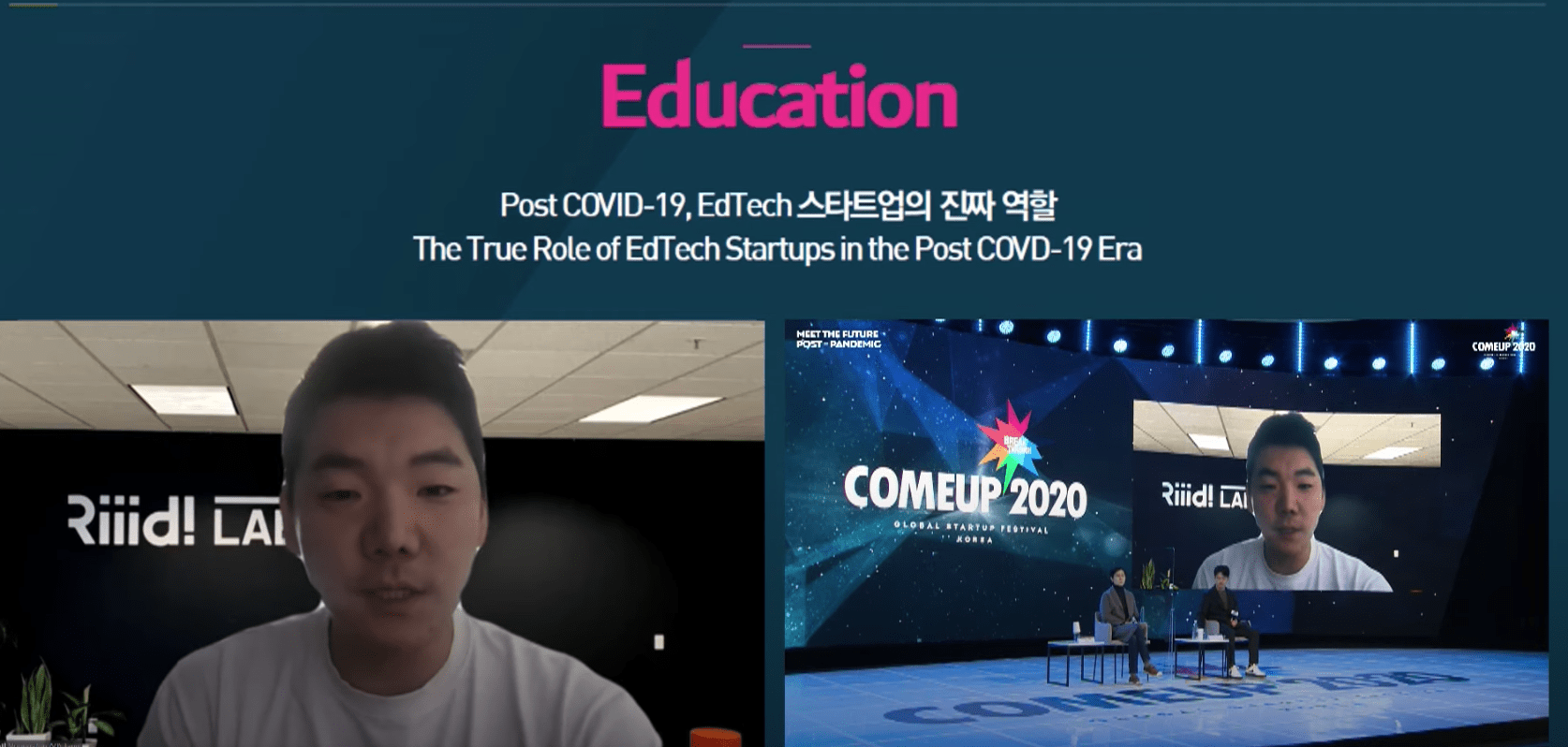
Seo Jung Chang , CEO of tutor matching service ‘Jacaranda’ and Dave Cho founder of the first online class platform Classting also joined the talk. It was an insightful discussion as the panel members shared their experience of starting their venture and then the impact of the pandemic on their businesses. The panel members all agreed that the future for EdTech is brighter in the post-COVID 19 era, while once it was not even thought of as a possibility.
The Upcoming of a Lifelong Learning Era
In a similar rhythm was the next panel talk on education which was moderated by Nari Lee, a newspaper critic, editorial writer for the JoongAng Daliy, head of the D-Camp Center for the Bankers Youth Startup Foundation, and executive secretary of Cheil Worldwide.
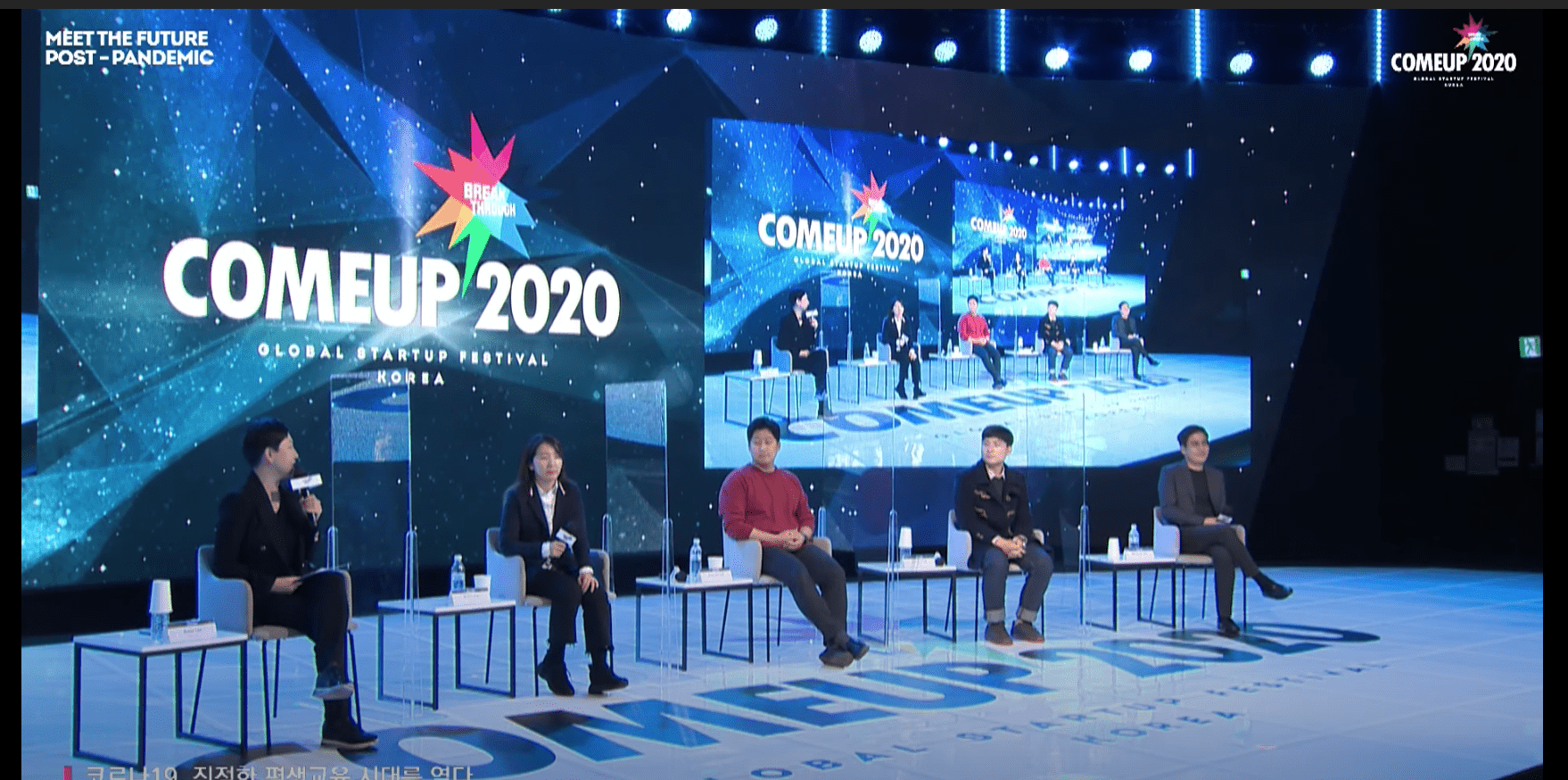
The panelists for the discussion were Kang Min Lee , former Business Development Team Leader at Fast Track Asia and entrepreneur, Yoon Soo Lee, co-founder & CEO at Codeit, an EdTech company that provides an interactive platform to teach people how to code, Kim Mi-hee is the CEO and founder of the on-demand running platform Turing and Young Tak Cho, CEO of Hunt , lifelong learning platform. The panel discussed the way e-learning has changed the education landscape and that it has no age restrictions as anyone can utilise online learning. The benefits of e-learning like ‘non-contact’ and virtual in times of COVID-19 pandemic were discussed. The panel talked about the future of learning and education to become more interactive, with technologies like virtual reality and augmented reality playing effective roles.
E-Commerce
E-Commerce has become an integral part of our lives, and especially in times of COVID-19, most of the people have shopped for their needs through e-commerce websites. But what is the future of e-commerce? Is it profitable for businesses and startups to turn to e-commerce? Or will e-commerce perish in another decade or so? COMEUP 2020 Day 3 held talks and panels about E-commerce with various experts and entrepreneurs in the industry.
Yeon Hee Kim, a senior partner at the Boston Consulting Group, Seoul office, started the E-commerce discussions with a keynote speech. Yeon has over two decades of experience in transformation and change management, organization, and leadership design.
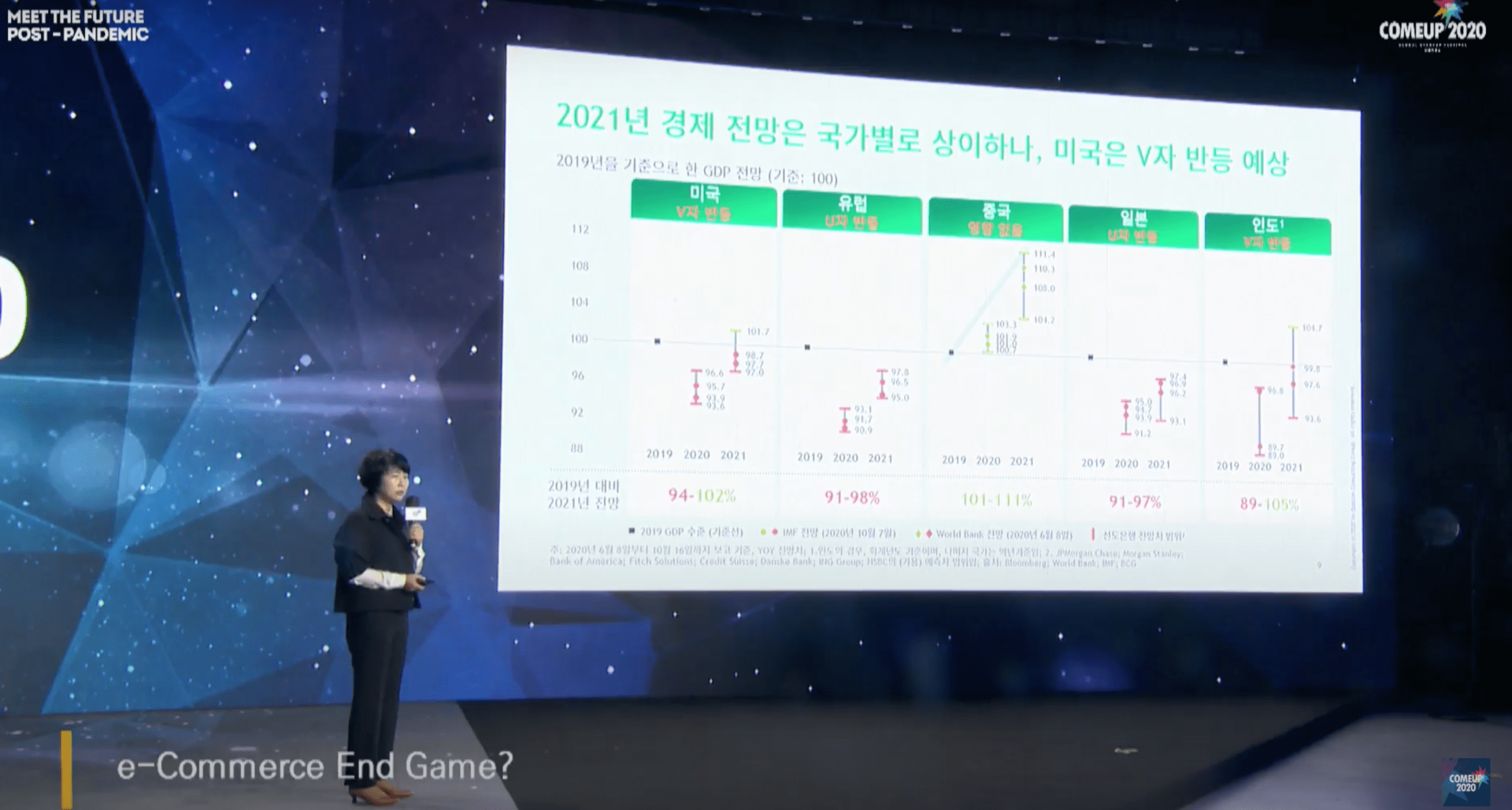
She has extensive transformation consulting experience in the fields of consumer products, retail, banking, credit cards, and digital. She has led several multi-year large-scale transformation projects. Yeon presented the talk in three parts: first being a macro look at the sector of e-commerce post-COVID-19 and the current economic situation. Second was the impact of the current pandemic situation on the industry in Korea and third she talked about the fashion and beauty sector in e-commerce business.
“Given that pandemic is healthcare crisis, compared to Feb-March, the cases have increased more now, and many countries have realised that lockdown may no longer be effective. So in the retail sector, we are seeing recovery and with hope of vaccine next year, the recovery will be better,” Yeon said. She talked about the e-commerce industry in Korea, which has a very high percentage penetration. Yeon talked about the consolidation taking place in the online commodity market and grocery market. She talked about how fashion and beauty market for e-commerce will see challenging times as customers will become more selective about buying. “In order to do good in fashion & beauty e-commerce market, innovation like videos, second hand markets, digital marketing strategies, etc needs to happen,” Yeon explained.
Panel: e-Commerce in the Post COVID Era
After an insightful talk on e-commerce, Yeon Hee Kim moderated a panel discussion on the future of e-commerce. The panelists included Hanna Kim, CEO of Korea’s first live commerce platform Grip, Jung Min Seo, CEO of Brandi, online design platform and Sang Hyun Ju, CEO of Yam Table, online commerce of fishery products. The entrepreneurs who have been in e-commerce businesses talked about the situation in pandemic and expectations of the future through their personal experiences.
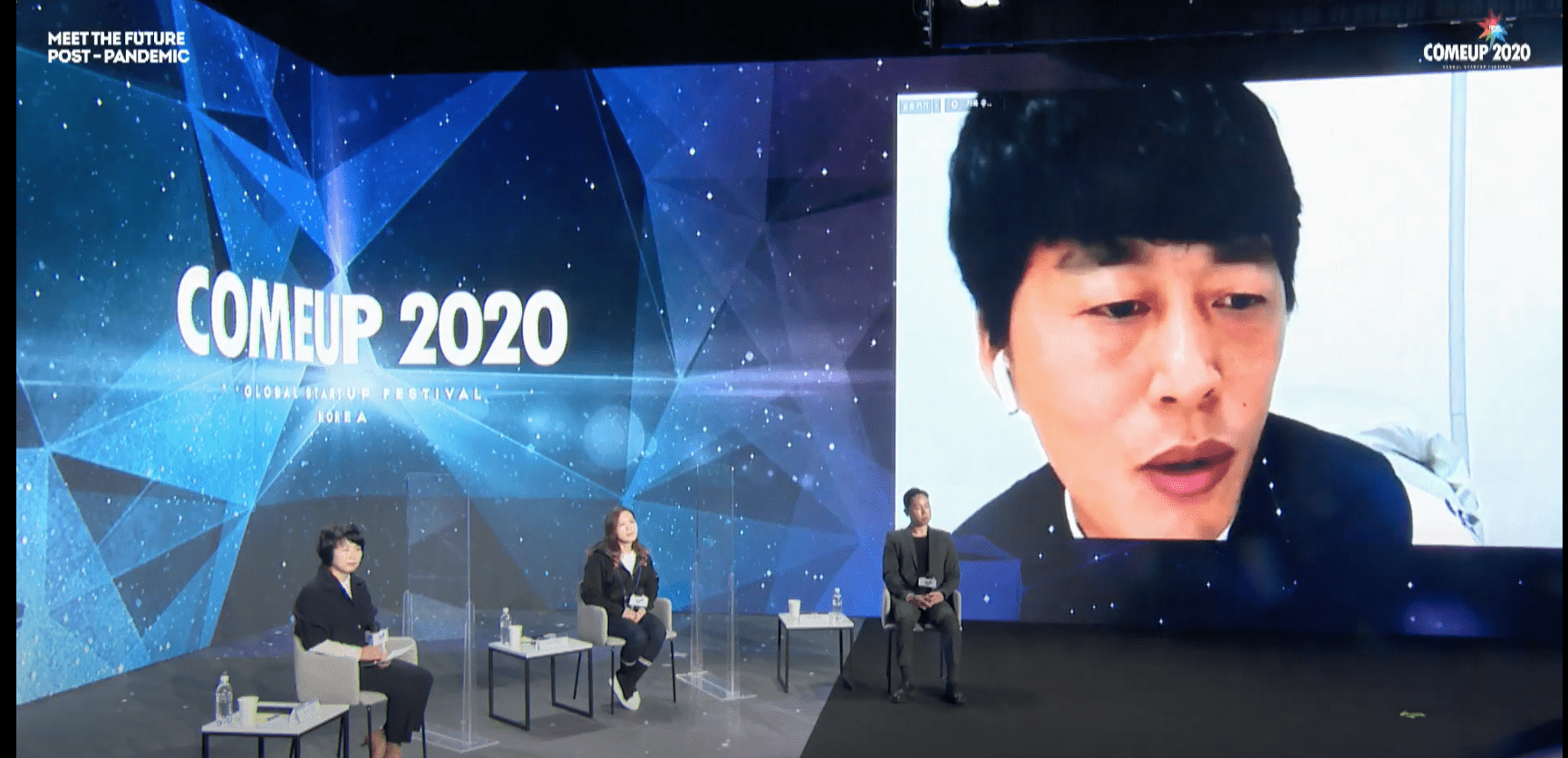
“We offer non-contact retail experiences, and we benefitted from pandemic situation as we got lot of offline brands on our platform,” Hanna Kim said. Jung Min Seo talked about how the fashion industry business has changed in 10 years time. “Now, millennial and Gen Z have fragmented preferences and have diverse platforms. So the consumer catering has becoming more individualised, where technology like Big Data and AI can help,” he said. Sang Hyun Ju talked about why it has been important for his e-commerce business of fishery product t maintain quality and freshness. The panel talked about challenges in the business and maintaining the turnover in times of pandemic with innovation. The panel advised startup founders to choose that sector they know about and enjoy working for.
Transformation of Consumer Experience – Driven by AI & 3D Printing
The second panel discussion under the ‘e-commerce’ theme, was a video recorded session moderated by Josh Choi, Director of Business Development at the Korea Startup Forum. Danit Peleg, a Fashion Designer known for her 3D printed fashion work and Alberto Rizzoli, CEO and Co-Founder of V7, an AI platform to create the sense of sight, were the panelists for the session.
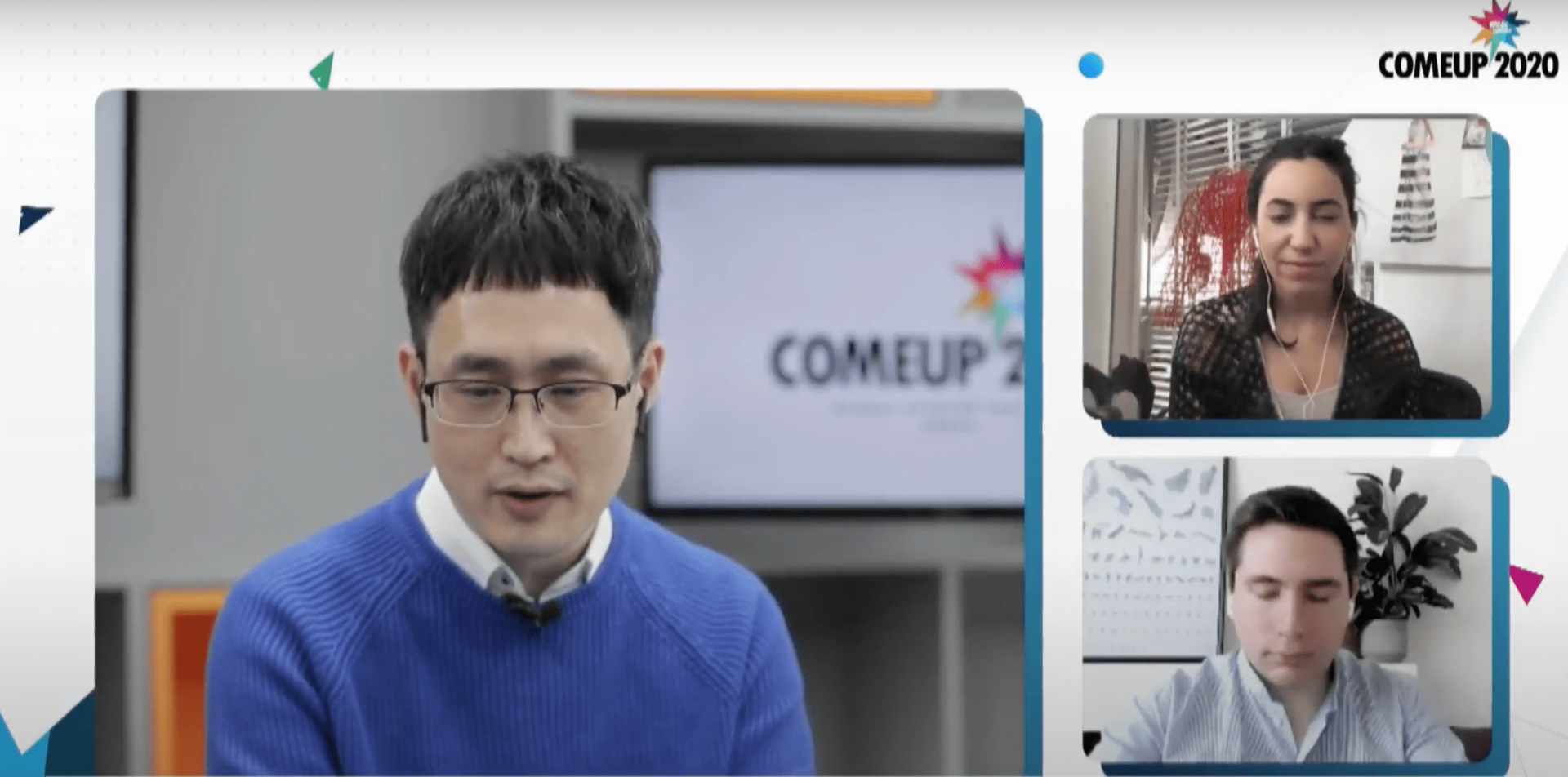
The panelists gave presentations about their specialities, products, work projects. Danit talked about how fashion industry can brig in digital revolution with collective efforts from designers, students, industry leaders and consumers. Alberto talked about how vision or sense of sight is important to give a rich consumer experience, and technologies like AI can create high-end consumer experience for businesses. Daniel also emphasised on enriching consumer experience and the future holds in making e-commerce experience more personal. She gave the example of Nike about creating online-experience of trying out of clothes. Both the panelists agreed on making fashion more sustainable. There was discussion on the impact of COVID-19 on their businesses and the strategy that worked
Koreatechdesk.com covered the entire 3-day event of COMEUP 2020 for its global readers and will bring in more stories about emerging startups, so do read our COMEUP section for more. Those interested in the COMEUP event and Korean startup ecosystem can check www.kcomeup.com website or follow their YouTube Channel.
Follow COMEUP 2020,


